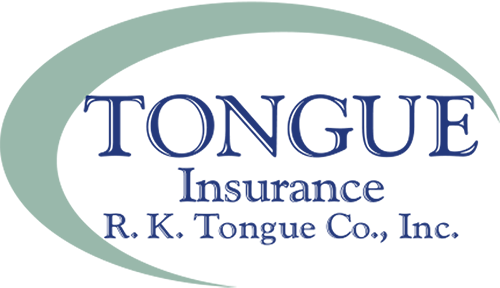R. K. Tongue Co., Inc. helps businesses and people become financially independent and stay that way.
Learn About R. K. Tongue Co., Inc.
Any insurance broker can offer products. R.K. Tongue goes above and beyond to consult and advocate on behalf of our clients and prospective clients. Our relationship persists long after initial sale and solution implementation. We invest time to educate and empower our clients to help them maximize efficiency and utilization of benefits resources.
We offer professional and management liability for healthcare, professional services, tech, government contracting, and non-profits. Because we specialize in complex risk profiles and lines of insurance, we also handle general commercial insurance with ease. Beyond typical benefits distribution, R.K. Tongue provides certain federal, state, and municipal employees with voluntary benefits from top companies through convenient payroll deduction. Contact us today to find out how we can help you become financially independent and stay that way.
Professional Protector Plan®
R. K. Tongue Co., Inc. is the exclusive program administrator for the Professional Protector Plan® for Dentists malpractice and office insurance program in MD, DC, VA, DE, and non-exclusively in NY/TX. We offer this program nationwide for large practice groups/DSOs. Contact us to learn more.
Our Core Values
Achievement
Loyalty
Family
Leadership
Expertise
Integrity
Resourcefulness
Creativity
Service
Our Clients Rave About Us
Check out our reviews and see why you should switch to R. K. Tongue Co., Inc.
“In the process of moving and assuming a private practice, R.K. Tongue provided me with comprehensive service providing many types of insurance and options. They are courteous, prompt, and diligent.”
Dr. James O., General Dentist
“I couldn’t be more pleased with the service I received at R.K. Tongue. My agent was incredibly knowledgeable and worked to identify the policy that best fit my needs.”
Dr. John C., Radiation Oncologist/Assistant Professor
“They are definitely an asset for any small business; and in today’s tough financial times, the extra money saved sure helped.”
Dr. Jason S., Optometrist
We Go Above and Beyond
R. K. Tongue Co., Inc. offers a variety of insurance by industry, personal insurance, business insurance, and employee benefits solutions to help you protect what matters most.
The Independent Agency Advantage
What makes our independent insurance agency different?
We offer a wide variety of insurance solutions.
We are there for you in your time of need.
We are by your side every step of the way.
We are licensed insurance advisors.
An Independent Agency Gives You Options
We proudly represent The Hartford, Liberty Mutual, and more!

Dental practices are susceptible to many risks, such as claims due to bodily injury, property damage, personal injury, and more.
General liability insurance is an absolute necessity for any dental practice. It provides broad coverage when you are deemed responsible and liable, and will also pay to defend any covered lawsuit or action, regardless of its merit. Additional limits are also available with a commercial umbrella insurance policy.
The internet has spun a whole new web of liability exposures. E-commerce, social networking, cloud storage, and other technologies bring great benefits to large and small practices alike. But with these benefits also come challenges, including protection of privacy, data, and the financial information of your customers.
Cyber liability insurance protects your practice in the event of unauthorized access to electronic data or software within your network. It also provides coverage for spreading a virus, extortion, accidental release of personal identifiable information, and resultant damage caused by a lost or stolen laptop or other mobile device. This coverage is quickly becoming more and more important as you embrace technology to help run your practice.
Dentists and licensed staff face a high risk of being sued by patients for such things as claiming a wrong diagnosis or treatment. All lawsuits must be defended, regardless of merit. There may also be a time when you are called for peer review, and hiring an attorney familiar with this process may be necessary.
Professional liability insurance, commonly known as dental malpractice insurance, can help with the cost of legal expenses and other damages if a lawsuit is filed making allegations regarding errors in your work. Peer review defense may or may not be covered under standard malpractice insurance, which is important to know before it’s too late.
What would you do if a fire impacted the operation of your practice? Or what if a pipe leak caused a system outage or extended downtime? These and other events can destroy your ability to treat patients and bring in revenue, which can have a major long-term impact on the viability of your practice.
Business interruption insurance compensates you for lost income if your practice cannot operate as normal due to damage that is covered under your commercial property insurance policy, such as fire or water damage. This type of insurance covers the revenue your practice would have earned, based on your financial records, had the incident not occurred. The policy also covers continuing operating expenses such as rent, electricity, and ordinary payroll.
Many dental offices unknowingly underestimate the costs associated with replacing dental equipment. It’s not uncommon to find out that there is not enough coverage to replace it, and sometimes it’s already too late.
With a business owners insurance policy (BOP), most office equipment is included as business personal property and would be protected in the event of a covered loss. For specialized, high-valued equipment, a separate policy may be required. Your agent or broker can help you to make that determination.
If one of your employees receives an injury or becomes ill due to a work-related occurrence, you are required by law to have the proper coverage in place.
Workers' compensation protects your employees should a job-related injury or sickness occur during the course of employment. This coverage is required by law, so be sure that you understand your obligations.
On average, it’s estimated that three-out-of-five businesses will be sued by their employees. While there is nothing you can do to prevent someone from filing a lawsuit, you can limit the costs of defending a legal claim with proper insurance coverage.
Obtain employment practice liability insurance (EPLI) to protect your practice and its directors, officers, and employees from alleged employment-related acts such as wrongful termination, failure to promote, discrimination, and sexual harassment.
What happens when your practice faces a large liability loss that exceeds the basic limit of your standard policy?
You should consider purchasing a commercial umbrella insurance policy which provides higher limits, typically between $2,000,000 and $10,000,000, and often broadened coverages. Coverage is extended over various policies, including general liability insurance, business auto, and directors and officers liability insurance.
There may be times when you cover for another dentist in their office. Similarly, you may have a dentist cover for you if you’re going to be away or unable to see patients. There may be other instances where you have independent contractors such as hygienists or dental assistants working in your office.
If your policy only covers you when you’re in your office and there’s a claim against you for work you performed in someone else’s office, you may not be covered. Your insurer needs to know the locations where you work as well as who is working in your office, even when any of these circumstances are on a temporary basis.
More and more, people are reporting practices to their state licensing bureau for any number of reasons that are not related to the care you’ve provided. Defending these claims often requires representation by an attorney who has specialized knowledge in this area.
Responding to complaints against your dental license can be very costly. License defense coverage can help cover these costs. This separate coverage is necessary because this type of complaint is separate from lawsuits covered by malpractice insurance.
Click it. Read it. Cover it.
- Click on the hotspots.
- Discover your risks.
- Explore coverage options.
Not what you’re looking for?
Explore more interactive graphics.
R. K. Tongue Co., Inc. is the endorsed insurance provider for:
Manage Your Policies
Already a client of R. K. Tongue Co., Inc.? Visit our Service Center to make requests and manage your insurance.
Let’s Get Started
Contact R. K. Tongue Co., Inc.
"*" indicates required fields
Don’t like forms? Contact us at 410-752-4008 or Email Us.


